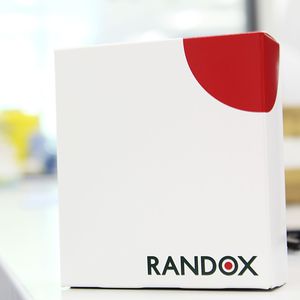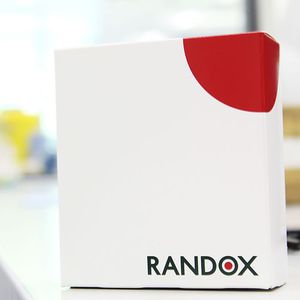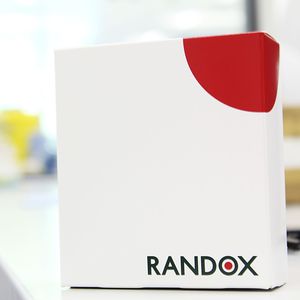
- Laboratory
- Laboratory medicine
- Enzyme reagent
- Randox Laboratories
- Products
- Catalogs
- News & Trends
- Exhibitions
Enzyme reagent CH2656for clinical chemistryliquidlipid
Add to favorites
Compare this product
Characteristics
- Type
- enzyme
- Applications
- for clinical chemistry
- Format
- liquid
- Tested parameter
- lipid, cholesterol
- Storage temperature
Max.: 8 °C
(46 °F)Min.: 2 °C
(36 °F)
Description
Exceptional correlation with standard methods
A correlation coefficient of r=0.99 was found when measured against the Ultracentrifugation method
Other Features
Direct Clearance Method
Liquid ready-to-use reagents
Correlation coefficient of r=0.99 with Ultracentrifugation method
What is LDL Cholesterol assay used for?
Low Density Lipoproteins (LDL) are synthesised in the liver by the action of various Lipolytic enzymes on triglyceride rich Very Low Density Lipoproteins (VLDLs). Specific LDL receptors exist to facilitate the elimination of LDL from plasma by liver parenchymal cells. It has been shown that most of the cholesterol stored in atherosclerotic plaques originates from LDL. For this reason the LDL-Cholesterol concentration is considered to be the most important clinical predictor, of all single parameters, with respect to coronary atherosclerosis.
Accurate measurement of LDL-Cholesterol is of vital importance in therapies which focus on lipid reduction to prevent atherosclerosis or reduce its progress and to avoid plaque rupture.
It is recommended a patient get tested when aged 40; as part of a routine CV health check; if they are already thought to be at risk of CVD for another reason; or to monitor their response to treatments which lower LDL Cholesterol.
Catalogs
No catalogs are available for this product.
See all of Randox Laboratories‘s catalogsRelated Searches
- Randox test kit
- Randox solution reagent
- Blood assay kit
- Randox molecular biology reagent
- Randox research reagent
- Randox diagnostic reagent
- Randox protein reagent
- Randox laboratory reagent
- Immunoassay rapid diagnostic test
- Randox enzyme reagent
- Molecular test kit
- Cassette rapid diagnostic test
- Whole blood detection kit
- Respiratory infection test kit
- Randox rapid virus test
- Randox histology reagent
- Randox biochemistry reagent
- Randox rapid infectious disease test
- Randox immunoanalysis reagent
- Cassette assay kit
*Prices are pre-tax. They exclude delivery charges and customs duties and do not include additional charges for installation or activation options. Prices are indicative only and may vary by country, with changes to the cost of raw materials and exchange rates.
























































































